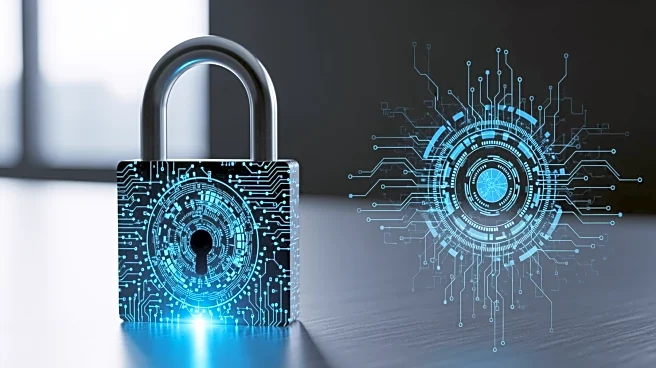What's Happening?
Mike Burgess, the head of the Australian Security Intelligence Organisation (ASIO), has raised alarms about Chinese government-linked hacking groups targeting critical infrastructure in Australia and the United States. Speaking at a business forum in Melbourne,
Burgess identified two groups, Salt Typhoon and Volt Typhoon, as being involved in cyber espionage and potential sabotage. These groups have been accused of attempting to penetrate and disrupt telecommunications, water, transport, and energy networks. Burgess emphasized the unprecedented levels of espionage and the growing threat of cyber-enabled sabotage over the next five years. The Chinese embassy has been contacted for comment on these allegations.
Why It's Important?
The targeting of critical infrastructure by foreign state actors poses significant risks to national security and economic stability. In the U.S., such cyber threats could disrupt essential services, leading to widespread societal and economic impacts. The potential for sabotage could impede decision-making, damage the economy, and undermine military capabilities. The espionage activities have already resulted in substantial financial losses, with Australia estimating a cost of A$12.5 billion due to espionage, including the theft of trade secrets and intellectual property. This situation underscores the need for heightened cybersecurity measures and international cooperation to protect critical infrastructure.
What's Next?
As the threat of cyber-attacks on critical infrastructure grows, governments and private sectors in the U.S. and Australia may need to enhance their cybersecurity defenses. This could involve increased investment in cybersecurity technologies, improved threat detection systems, and stronger international collaboration to counteract these threats. Additionally, diplomatic efforts may be necessary to address and mitigate tensions with China regarding these cyber activities. The situation calls for a comprehensive strategy to safeguard national security and economic interests against cyber threats.
Beyond the Headlines
The increasing willingness of authoritarian regimes to engage in cyber sabotage highlights a shift in global power dynamics, where cyber warfare becomes a tool for geopolitical influence. This development raises ethical and legal questions about state-sponsored cyber activities and the need for international norms and agreements to govern cyber conduct. The potential for widespread disruption of critical infrastructure also emphasizes the importance of resilience planning and public awareness to mitigate the impacts of such attacks.















